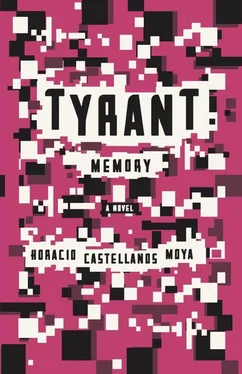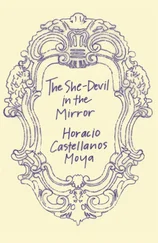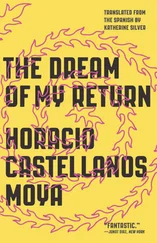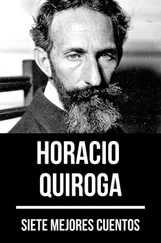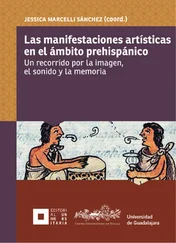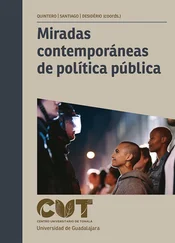Old Man Pericles blows out the smoke and stares into Nikolai’s blue eyes; he wonders how old this Russian is: forty? forty-five?
“Were you in your country during the October Revolution?” the old man asks, off the cuff, before finishing his whiskey.
Nikolai smiles, then nods and winks.
They agree to dine one day that week in a restaurant in that city I never saw and never will, but it wasn’t difficult for me to imagine the afternoon in question, while lying in my hammock with the story of Pericles in Brussels playing in my head like an old movie, which took place in a restaurant of Nikolai’s choosing, with private rooms suitable for intrigue, in one of which the old man would sit after giving his coat to the waiter, with that astonishing lighthearted sensation that accompanies a man who has decided to take on his own destiny.
It is not difficult for me to imagine the freedom Old Man Pericles felt when he made the decision to resign from his diplomatic post and become the opponent he would be from then on, the “Soviet agent,” as the authorities would call him each time they jailed him or sent him into exile; that sensation of freedom and adventure of knowing that he was returning to his country as somebody else, his own opposite, without anybody at first suspecting; the lightheartedness that comes from having finally divested himself of the contradiction of belonging to and representing a camp he found utterly repugnant. It was in the last few months of 1937, if I remember correctly. Old Man Pericles returned all grown up, saturated with the events taking place in Europe; he told stories, amazing at the time, about Nazis and fascists, and he could talk for hours about events in Spain, about the Republicans and the Franco uprising.
Haydée experienced the old man’s resignation differently, as she admitted to us when she returned: hers were the concerns of a mother (Clemente and Pati were teenagers and Alberto was still a boy), the concerns of a woman from a conservative family who doesn’t fully understand her husband’s decisions, but who is also enormously happy to be returning to her own land and her own people.
Before serving lunch, Carmela said she would bring a glass of watermelon drink to the poor Viking, who was waiting outside, sitting in the shadow cast by a silk cotton tree, he himself a shadow of Old Man Pericles for years already. Carmela always took pity on him, brought him a cold drink, and told him he mustn’t worry, he could have lunch in the dining room where the park employees ate, Old Man Pericles would be at the house until late in the afternoon, as if he were a friend and not the police spy assigned to tailing our friend. The Viking wasn’t as old as we were, but I had the feeling he was aging more quickly, as if he were suffering from a secret malady.
When I first met Haydée, as I’ve said, she was a tall, slender young woman with red hair; beautiful, brimming with life, and so expressive that next to her, Old Man Pericles — who at that time wasn’t old but was already scowling and reserved — seemed mute. For decades, and every time she wanted to irritate him, Haydée would tell the story of how her heart was pierced by that handsome, dashing young second lieutenant of the cavalry, who paraded around proudly on his sorrel, leading his sweaty troops through the central plaza in Santa Ana. The eldest and favorite daughter of Don Nico Baldoni, a fellow coffee-grower and friend of Carmela’s father, Haydée had the wisdom to take what life offered her with a good dose of wonderment. I never heard her once complain about the tribulations she was forced to undergo at her husband’s side: sometimes she spoke enthusiastically about one or another of their periods of exile and the juggling acts she had to perform to survive when her husband spent time in jail. But I am also certain her family never left her to fend for herself. Don Nico respected Old Man Pericles, and he must have supported him at least until 1944, when the dictator fell, because at that time we were all in the opposition; later, after the Second World War and once the old man had already been branded a communist, things may have changed. But Haydée was loyal to him for better and for worse. Until she was stricken with breast cancer, sudden and devastating, which finished her off before we could even get used to the idea of her being gone.
Carmela had made a casserole of ground beef, vegetables, and green plantains; she served the beans separately in soup bowls topped with cream and grated cheese, just as Old Man Pericles liked.
“Have you heard anything from Estela and Alberto?” Carmela asked, as if wanting to liven up the repast, perhaps seeing that the old man was even more withdrawn than usual, whereas I perceived him as he always was: laconic, and averse to small talk.
“They’re fine,” Old Man Pericles mumbled, “and Albertico is, too; he’s happy at the university.”
Carmela said they had done well to make lives for themselves there, in San José, Costa Rica, where they’d gone into exile a year earlier, after the failed coup that Alberto’s close friends had participated in, and maybe he had himself, though he denied it; his daughter Pati had also been living in that city for more than three decades.
“We got a letter from Maggi today,” Carmela said, as if she was determined to intrude on every silence; later I understood she wasn’t doing this out of compassion for Old Man Pericles but rather for herself, for both of us, for it was frightening to think that we were eating with death sitting in the chair next to us.
“Without the treatment, the pain is going to knock you out,” I told him, taking the bull by the horns.
“The pain will knock me out with or without the treatment,” Old Man Pericles said as he took another bite.
At the previous appointment, the doctor had told him that if he didn’t undergo the treatment he’d have only a few months left, it would become increasingly hard to breathe, and he would suffer unbearable pain.
I felt as if Haydée had entered the dining room, a strange, fleeting presence; Carmela turned to look at me. Old Man Pericles finished eating the meat casserole, then pulled the bowl of bean toward him with relish, breaking into a smile and saying:
“Horrifying, don’t you think?”
The rumble of the bus broke the heavy midday silence.
“You should make another appointment. If you don’t get the treatment, you’ll regret it,” Carmela said, clearly upset. Then right away, before getting up, she asked, “Are you going to want more juice?”
Old Man Pericles asked her also for more tortillas, toasted rather than fresh, the way he liked them.
“Did you ever find out who was living at that house at mile nine?” I asked.
The old man wiped the plate of beans with a piece of tortilla. He nodded, without looking up.
“Nothing good is in store for us.,” I commented.
“Things here are always worse than we imagine,” he said before bringing the dripping piece of tortilla to his mouth; he left the bowl clean, pure, without a trace of beans and cream. “Fortunately, I won’t be around to see it,” he added with no self-pity, as if he really did foresee what was coming.
Now I understand how grateful Old Man Pericles was that Albertico had left the country: some of his companions at the university, his age, were already appearing in the newspapers as supposed members of the burgeoning guerrilla cells that were confronting the military government. Surely the old man was staring at the specter of the insurrection of 1932, at the butchery armed struggle can lead to.
Albertico was the grandchild with whom the old man most identified; this was evident when he told us that the young man had started studying sociology at the University of Costa Rica, and that he took on politics with a dedication and lucidity that neither his father nor his Uncle Clemente had ever had; he called Clemente’s children “futile flesh,” and Pati’s “meek Costa Rican lambs.”
Читать дальше
